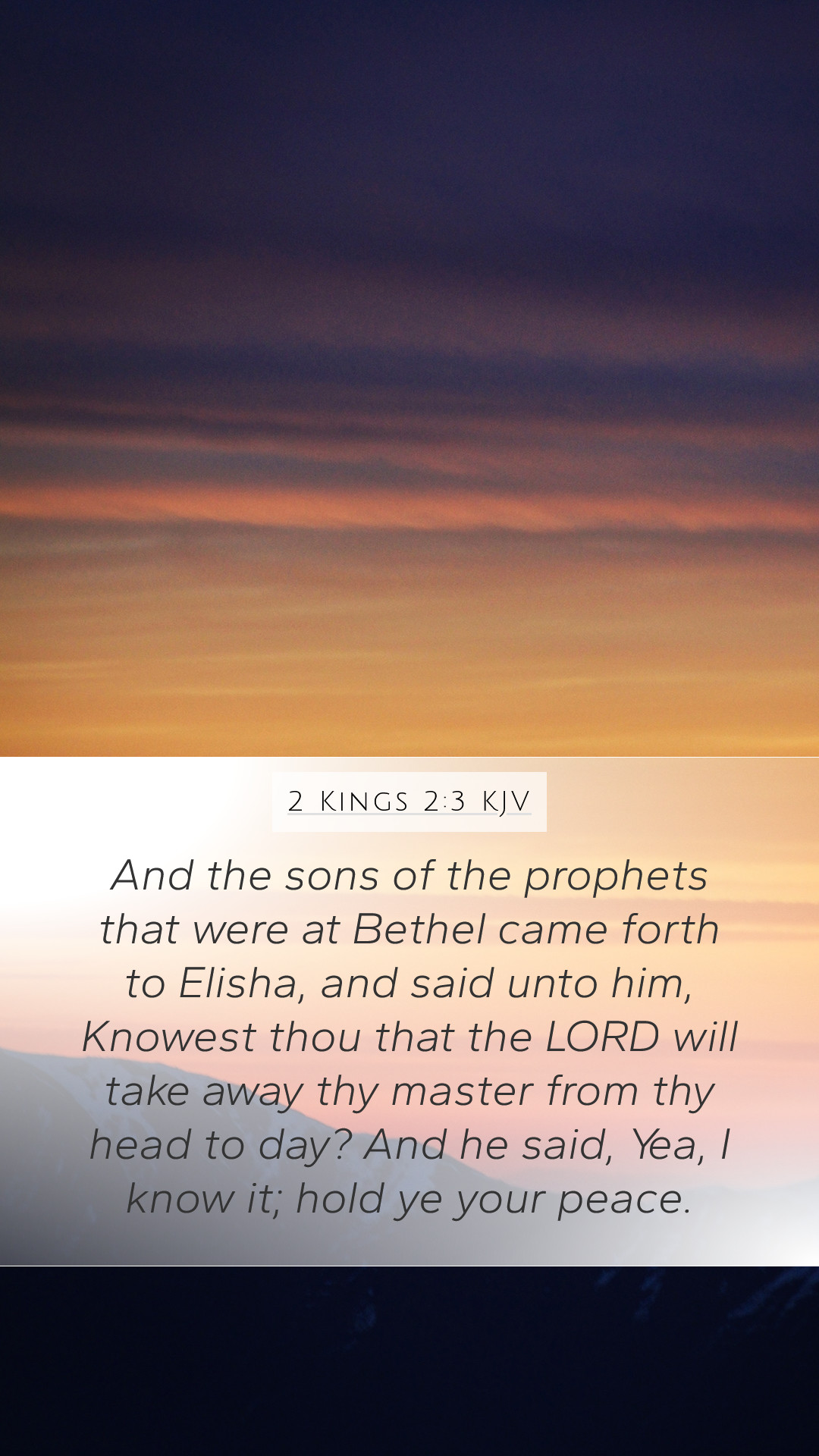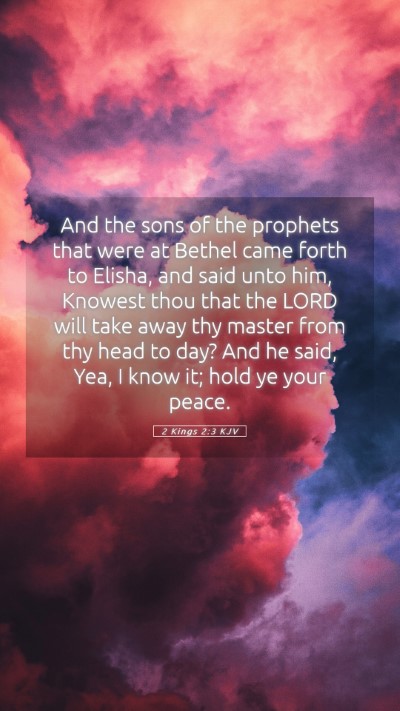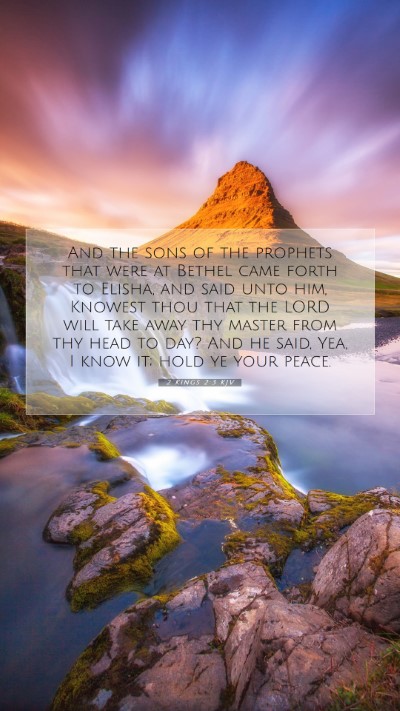Understanding 2 Kings 2:3
2 Kings 2:3 captures a pivotal moment in the life of the prophet Elisha as he prepares to assume the prophetic mantle from Elijah. This verse reads: "And the sons of the prophets that were at Bethel came forth to Elisha, and said unto him, Knowest thou that the Lord will take away thy master from thy head today? And he said, Yea, I know it; hold ye your peace." The verse is rich with meaning and offers insights into prophetic succession, the nature of discipleship, and the recognition of God's plans.
Verse Context and Importance
This verse occurs in a larger narrative where Elijah is about to be taken up into heaven. The prophetic community surrounding Elijah and Elisha, often referred to as the "sons of the prophets," provides key context. These individuals serve as both disciples and prophetic colleagues. Their inquiry reveals their awareness of divine movements and foreshadows significant transitions in leadership.
Commentary Insights
Matthew Henry's Commentary
Matthew Henry emphasizes the importance of acknowledging God's work and understanding the transitions that He orchestrates. The sons of the prophets act as a community aware of God's impending actions. Elisha's response reflects his mature recognition of the gravity of the situation, indicating that he is not overwhelmed by the impending loss of his mentor but is instead prepared for the continuation of God’s mission.
Albert Barnes' Commentary
Albert Barnes notes that the "sons of the prophets" serve as a reminder of the continuity of God’s message through successive generations of leaders. Their question to Elisha shows their understanding of the times in which they live and the necessity of preparing for the future. Elisha acknowledges their statement, indicating his awareness and his readiness to move into the role that awaits him after Elijah's departure.
Adam Clarke's Commentary
Adam Clarke discusses the emotional and spiritual implications of this moment. He highlights the prophetic community's role and how they serve as a network of support for Elisha. Clarke suggests that Elisha's calm acceptance of the situation shows his strong faith and commitment to God's will. The phrase "hold ye your peace" denotes not only a command for silence but also a call to solemnity as they face this significant moment together.
Key Themes and Applications
- Transition and Leadership: Elisha's transition into the role of lead prophet emphasizes the importance of mentorship and succession in spiritual leadership.
- Awareness of Divine Plans: The sons of the prophets represent those who are attuned to God's workings in their midst. Their ability to foresee the transition shows a deep understanding of spiritual dynamics.
- Preparedness: Elisha's response indicates his readiness to accept his new role, highlighting a key element of discipleship - being prepared for God's calling.
Cross References
- 1 Kings 19:19-21 - The calling of Elijah’s successor.
- 2 Kings 2:1 - The account of Elijah’s ascension to heaven.
- 2 Chronicles 21:12-15 - Another account of prophets during the time of Elisha.
Conclusion
2 Kings 2:3 serves as a profound reminder of the importance of recognizing God’s actions and preparing for the changes they bring. For those engaged in Bible study, this verse invites discussion on hearers' response to God’s plans and their readiness to step into new roles. Understanding Scripture deeply enriches our ability to apply these lessons as we navigate transitions in our own lives.


